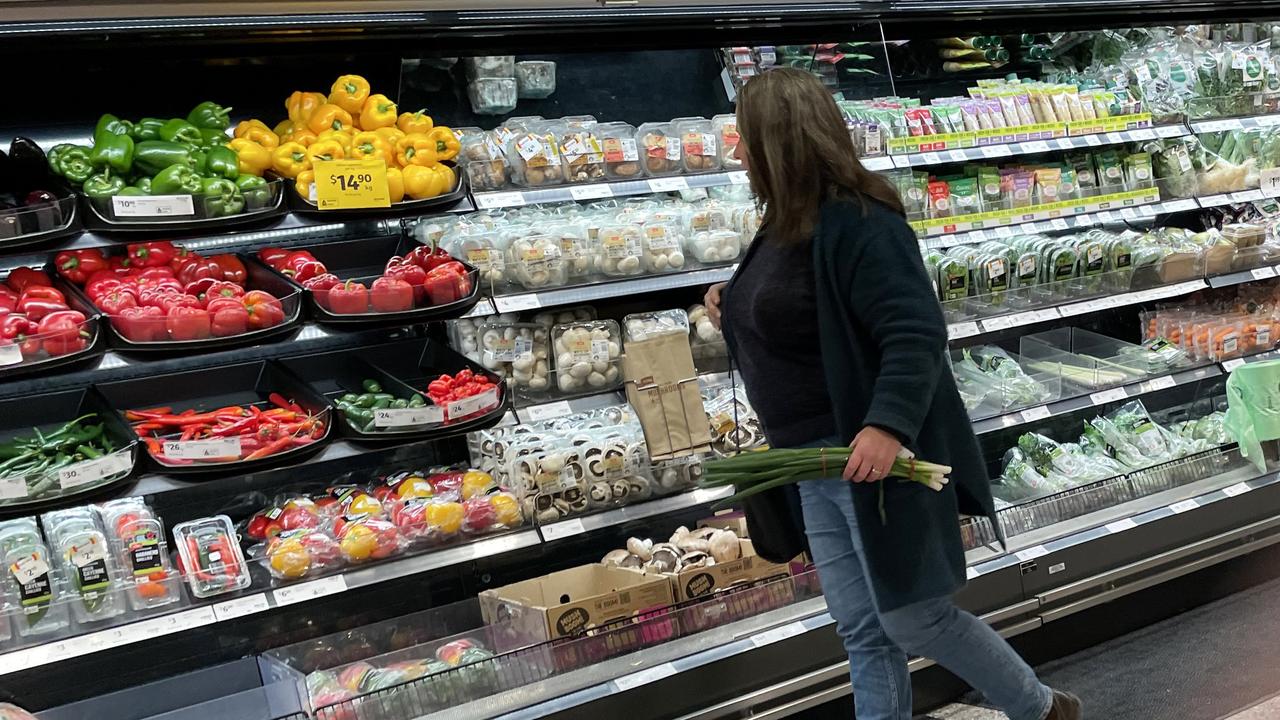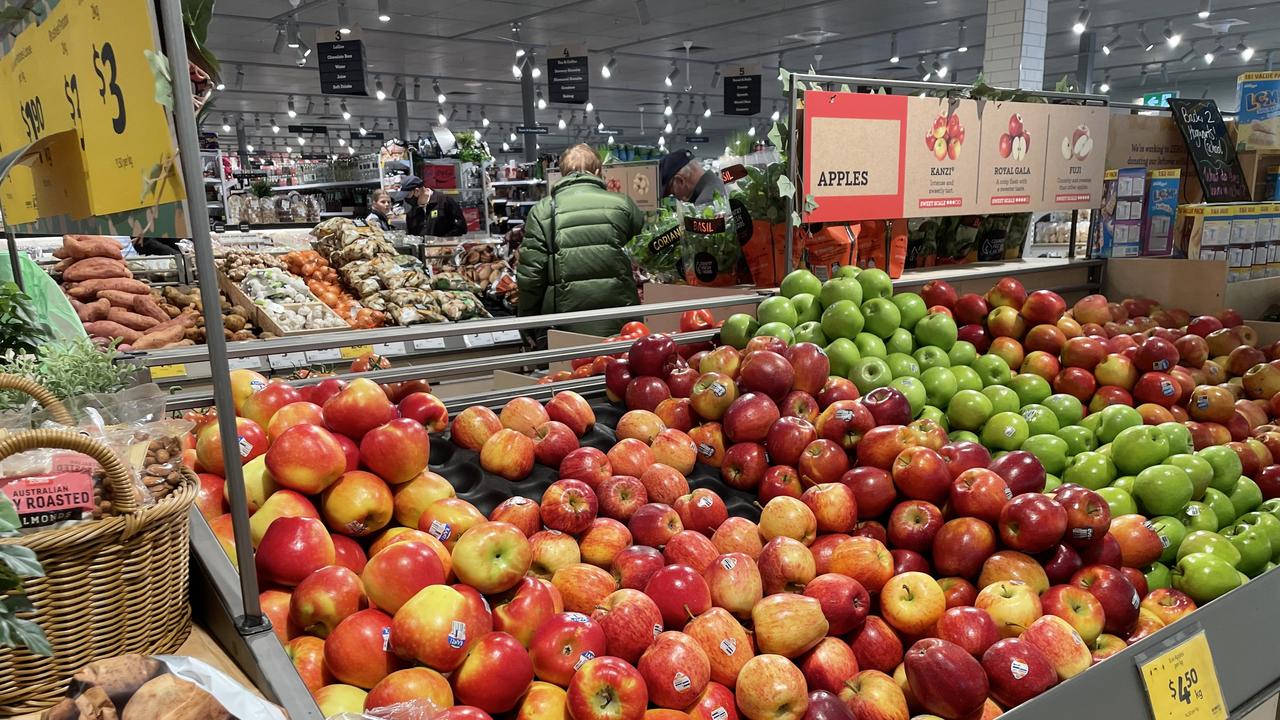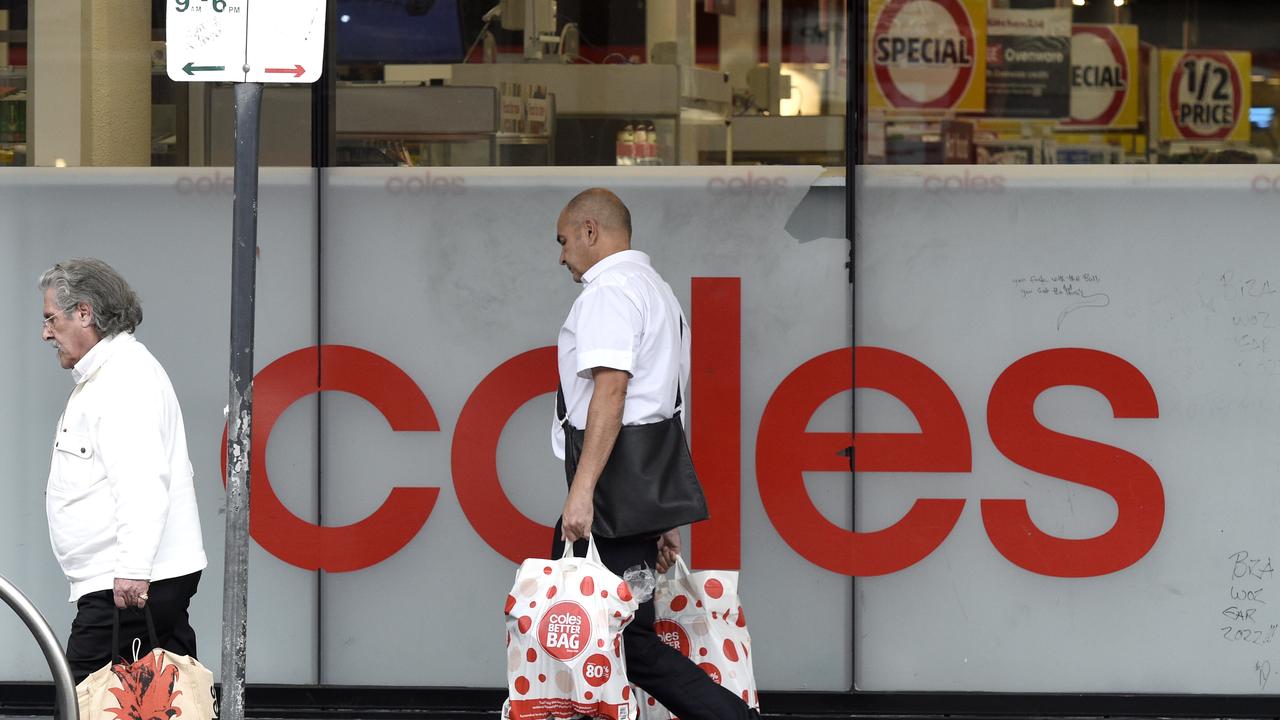Coles, Woolworths and Aldi reveal best way to slash grocery bills
Australia’s supermarket giants have shared their top tips for shoppers looking to shave hundreds from their festive season food expenses.
With the cost of living crunch and soaring grocery prices, Australia’s supermarket giants have revealed the best ways to slash grocery bills before the festive season.
From Coles’ discount gift cards, Woolworths promising price freezes and Aldi urging shoppers to prepare early, bargains can be found in all sections of the various stores.
Three quarters of Aussies expect their spending to significantly increase in the eight weeks leading up to Christmas, according to Aldi.
Another 63 per cent say their attitude to managing budgets has changed over the last 12 months amid spiking cost of living prices.

To combat this, Aldi advises shoppers to stock up on non-perishables early to spread out festive costs, and switch to non-branded products for big price purposes.
In fact, the supermarket claims the average shopper can save $663 across the festive season alone if they move away from branded products.
Managing director of ALDI Australia Oliver Bongardt says savings are easily spotted in his stores’ produce section.
“Our fresh produce category is award-winning and is at least 18 per cent more affordable than our competitors,” he says.
“We offer a consistent price gap that means customers can enjoy the best value products for the lowest possible prices this festive season and beyond. No tricks, just simple savings.”
At Coles, the prices of essentials have been dropped in the lead up to Christmas – from cheese, bread rolls to chicken and cream.
These hundreds of dropped prices will remain locked until January 31.
Coles is currently offering 10 per cent off $100 and $250 Coles MasterCard Gift Cards, giving shoppers an instant cash reward at the checkout.
The cards can be used on groceries, household bills, petrol or anything which can typically be bought with a MasterCard.
To help spread out costs, Coles is reminding customers that all Christmas puddings and fruit mince pies have a long shelf life and are available now to last until Christmas.
Coles executive general manager for packaged grocery Jonathan Torr says the discount offers
are intended to maximise savings as inflation continues to bite.

“We know this time of the year can be a challenging one for many Australians, with heightened spending and ongoing cost of living pressures, so we’re always looking at ways we can help to make a difference to their weekly budget,” Mr Torr said.
Similarly, Woolworths is pushing forward its Everyday Rewards program, where points can be converted to cash discounts off a customer’s next shop.
The pilot Everyday Extra gives customers extra perks, including 10 per cent off a shop each month at Woolworths and Big W for a monthly $7 fee.
The card also offers three times the number of rewards points on every shop at the supermarket in the lead up to Christmas.
Woolworths’ price freeze program launched in June across 200 essential products to keep costs locked at the same price for the rest of the year.
Being part of the program would save the average customer between $250 and $400 a year, according to the supermarket.
“We have over 5000 specials every week, and we’ve frozen the prices on a trolley’s worth of household essentials through to the end of the year,” a Woolworths spokesman said.
The supermarket giants’ bid to reduce prices comes after a challenging year for the sector, due to the global supply chain crisis.

Woolworths’ prices increased by 4.3 per cent in the first quarter of 2022 alone, compared to the previous quarter, when they were up 1.4 per cent.
Meanwhile, Coles’ prices went up 3.2 per cent, according to UBS.
In July, Aldi warned grocery prices would “inevitably” continue to rise after the inflation rate surged to 6.1 per cent.
Figures from the ABS showed virtually all grocery items had been impacted by price hikes this year, with fresh produce among the hardest hit.
Fruit and vegetables became a whopping 7.3 per cent more expensive than last year.
There was also a 5.8 per cent rise from the first to second quarter of 2022.
The price of meat, seafood, bread and cereal products rose 6.3 per cent, while the cost of non-alcoholic beverages rose 7.9 per cent.



